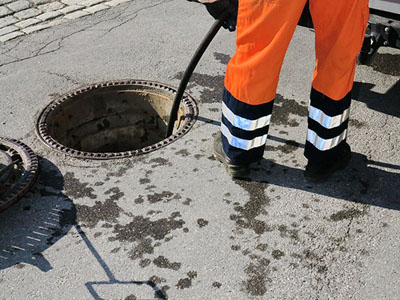
Introduction:
Maintaining the proper function of your drains is essential for a smoothly running household. Neglecting drain maintenance can lead to clogs, unpleasant odors, and even more severe plumbing issues. In this article, we’ll explore effective tips for ensuring the longevity and efficiency of your drains.
Watch What Goes Down:
One of the fundamental aspects of drain maintenance is being mindful of what goes down the drain. Avoid letting grease, food scraps, coffee grounds, and other debris enter the kitchen sink. In the bathroom, prevent hair, soap scum, and hygiene products from clogging the drains. Implementing this simple practice goes a long way in preventing potential blockages.
Regular Hot Water Flush:
To keep your drains clear, periodically flush them with hot water. Hot water helps dissolve grease and soap residue that may accumulate in the pipes. Pouring a kettle of boiling water down the drain once a week can be an effective preventive measure. Be cautious with PVC pipes, as extremely hot water may damage them.
Baking Soda and Vinegar Magic:
An eco-friendly and cost-effective way to maintain your drains is by using a mixture of baking soda and vinegar. Pour a cup of baking soda down the drain, followed by a cup of vinegar. Let it sit for about 10-15 minutes, then flush with hot water. This natural combination helps break down debris and eliminates odors.
Mesh Screens for Prevention:
Prevention is key when it comes to drain maintenance. Install mesh screens over your drains to catch hair, food particles, and other debris before they enter the pipes. Regularly clean these screens to ensure they continue to effectively prevent substances from clogging your drains.
Regular Cleaning Routine:
Incorporate drain cleaning into your regular household cleaning routine. Use a pipe-friendly drain cleaner or a homemade solution of vinegar and baking soda. Pour it down the drains once a month to break down any accumulated residue and maintain the free flow of water through the pipes.
Avoid Chemical Drain Cleaners:
While chemical drain cleaners may offer a quick fix, they can have detrimental effects on your plumbing system in the long run. These harsh chemicals can corrode pipes and create more significant issues. Opt for natural alternatives or seek professional help if a clog persists.
Tree Root Prevention:
For homeowners with trees in close proximity to their plumbing lines, tree roots can be a common cause of drain issues. Regularly inspect your outdoor pipes and consider consulting with a professional to install barriers or take preventive measures against tree root intrusion.
Professional Inspection:
Routine professional inspections are crucial for identifying potential problems before they escalate. A plumber can use specialized tools, such as cameras, to inspect the interior of your pipes and address any issues, such as leaks or blockages, promptly.
Mindful Disposal of Chemicals:
Avoid disposing of harsh chemicals, oils, or grease down the drain, as these substances can contribute to clogs and damage pipes. Dispose of hazardous chemicals through proper channels and consider more eco-friendly alternatives for household cleaning.
Explore Drain Maintenance Tips at home-radiators.com:
For more in-depth tips and professional advice on effective drain maintenance, visit home-radiators.com. Their comprehensive resources can guide you in implementing proper maintenance routines to keep your drains in optimal condition, ensuring a smoothly running plumbing system in your home.
Conclusion:
Proper drain maintenance is a fundamental aspect of home care that should not be overlooked. By implementing these effective tips, you can prevent clogs, unpleasant odors, and more severe plumbing issues, ensuring that your drains remain efficient and trouble-free. Regular maintenance not only saves you from potential headaches but also contributes to the overall well-being of your plumbing system.







